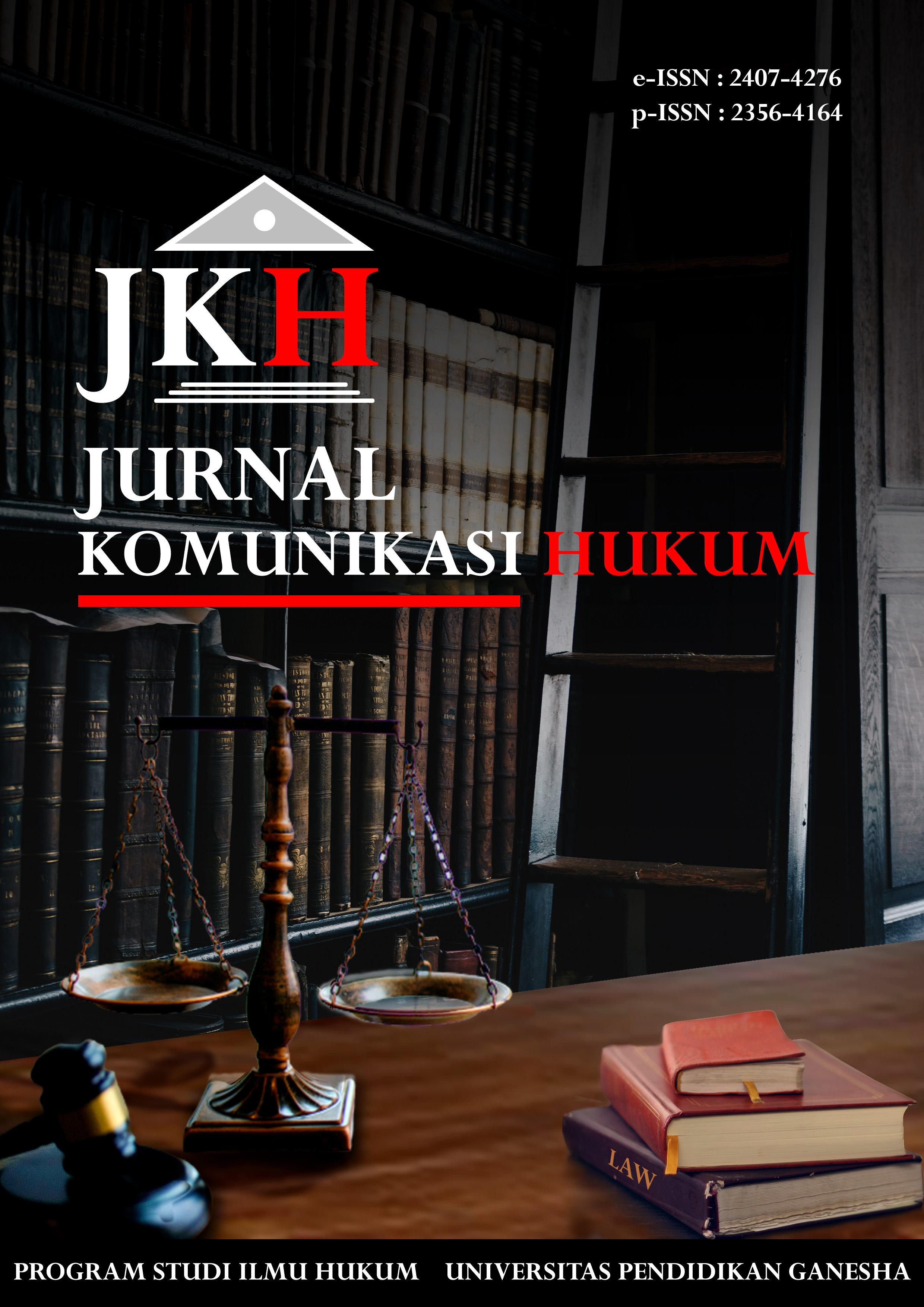Tata Cara Pemungutan Pajak dalam Perpektif Hukum Pajak
DOI:
https://doi.org/10.23887/jkh.v7i1.31686Keywords:
setelsel, principle, system, tax collectionAbstract
This study aims to analyze the tax collection system, tax collection principles and tax collection system from a tax law perspective. This study is a normative juridical study to examine existing legal norms which are derived from statutory regulations. The data collection technique was carried out by means of literature study with the literature study guideline instrument that was developed independently. The data analysis technique is carried out descriptively, which begins with collecting data, reducing data, presenting data and drawing conclusions. The results of the analysis show that the tax collection system can be divided into three, namely the real system, the fictitious system and the mixed system. The principle of tax collection consists of the principle of domicile, the principle of source and the principle of nationality. The tax collection system consists of an official assessment system, a semi self-assessment system, a full self-assessment system and a withholding system. Based on the Indonesian tax law, the tax collection system uses the real system. Meanwhile, the principle of tax collection uses the principle of domicile, the principle of source and the principle of nationality. The tax collection system uses a self-assessment system where the taxpayer fills in according to statutory provisions.
Downloads
Published
How to Cite
Issue
Section
License
Authors who publish with this journal agree to the following terms:- Authors retain copyright and grant the journal right of first publication with the work simultaneously licensed under a Creative Commons Attribution License that allows others to share the work with an acknowledgement of the work's authorship and initial publication in this journal.
- Authors are able to enter into separate, additional contractual arrangements for the non-exclusive distribution of the journal's published version of the work (e.g., post it to an institutional repository or publish it in a book), with an acknowledgement of its initial publication in this journal.
- Authors are permitted and encouraged to post their work online (e.g., in institutional repositories or on their website) prior to and during the submission process, as it can lead to productive exchanges, as well as earlier and greater citation of published work (See The Effect of Open Access).
Authors who publish with this journal agree to the following terms:
- Authors retain copyright and grant the journal right of first publication, with the work [SPECIFY PERIOD OF TIME] after publication simultaneously licensed under aCreative Commons Attribution License that allows others to share the work with an acknowledgement of the work's authorship and initial publication in this journal.
- Authors are able to enter into separate, additional contractual arrangements for the non-exclusive distribution of the journal's published version of the work (e.g., post it to an institutional repository or publish it in a book), with an acknowledgement of its initial publication in this journal.
- Authors are permitted and encouraged to post their work online (e.g., in institutional repositories or on their website) prior to and during the submission process, as it can lead to productive exchanges, as well as earlier and greater citation of published work (See The Effect of Open Access).












